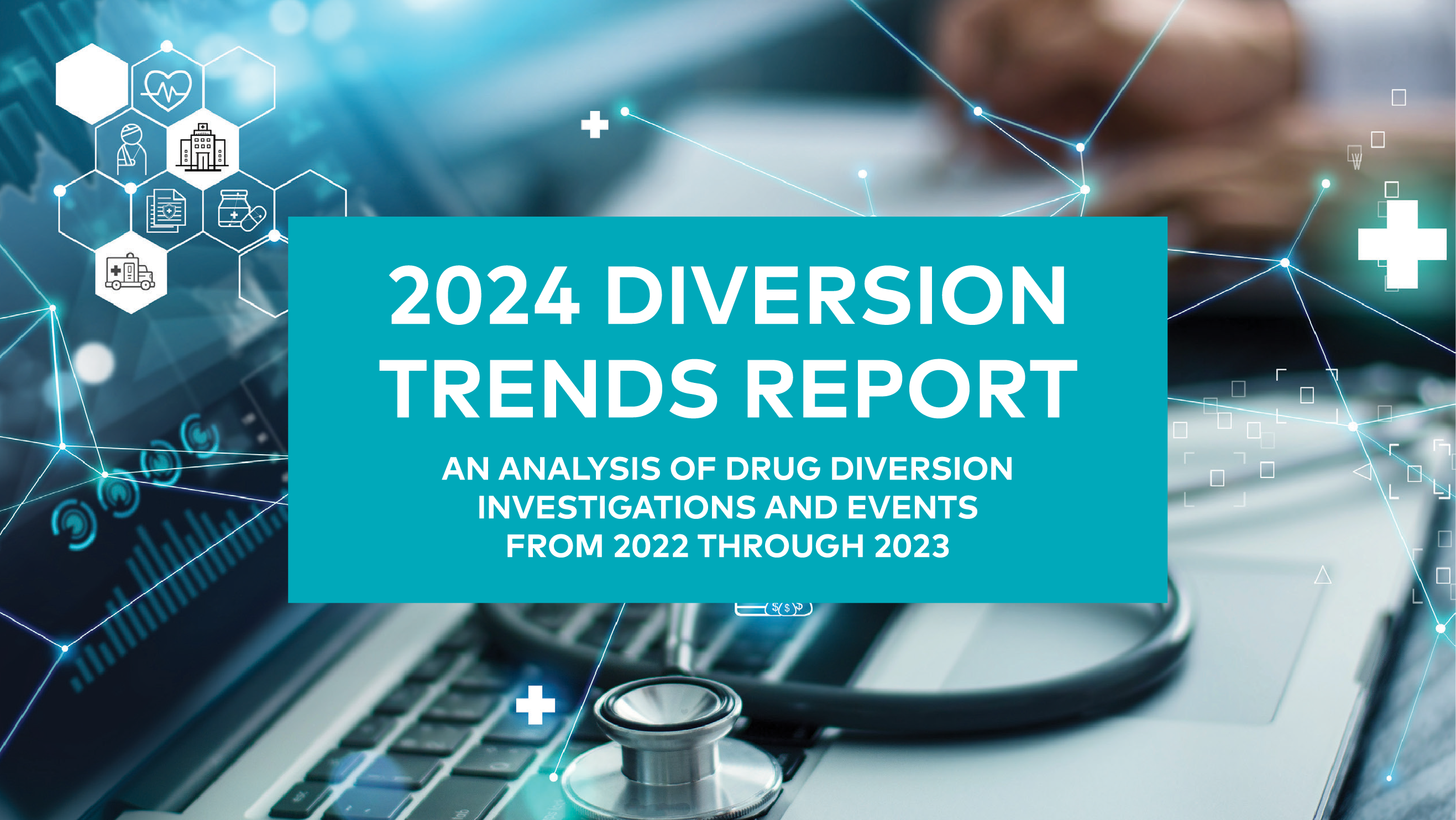New research provides insights into waste events, reduced hospital variances and improved investigations.
ALEXANDRIA, Va., July 11, 2024 — Bluesight, the leader in Medication Intelligence™ solutions, today unveiled its 2024 Diversion Trends Report, a comprehensive review of the impact of monitoring, prevention, and identification of controlled substance diversion in healthcare settings. Examining data across controlled substance transactions from January 2022 through December 2023, this report provides healthcare providers with critical insights to drive operational improvements and enhance patient safety.
Key highlights from the report include:
- Diversion Investigations are being closed 37 days sooner on average: a sign of enhanced workflows and more efficient evidence collection.
- Waste events, which can be a risk factor for diversion, added up to over 16 million wasted packages or approximately $38 million in lost costs.
- Top departments involved in variances include nursing (77.7%), anesthesiology (11.8%) and pharmacy (5%).
- Fentanyl (24%) is the top drug associated with variances, followed by Midazolam (15%), and Hydromorphone (10%).
- Discrepancies in controlled substance orders, administrations, wastes, or returns per hospital per quarter decreased by nearly 24% since 2022, enabling hospitals to better prioritize their diversion detection efforts.
- Half of transaction variances were flagged due to incorrect documentation, meaning there was mischarting or a discrepancy that reflected the wrong patient, drug, or dosage.
The report found that diversion monitoring efforts are improving, with fewer discrepant transactions (from 8% to 7%) and more efficient investigations. At the beginning of 2022, investigations were taking an average of 84 days to close. As of December 2023, they are being resolved 37 days sooner, averaging 47 days. Outside of this report, this trend continues into 2024 with investigations averaging only 38 days as of March 2024. This consistent decline indicates enhanced workflows and more efficient evidence collection, supported by increased staff resources for diversion as noted in the 2023-2024 Hospital Pharmacy Operations Report.
The report also highlights risks for diversion, such as waste events of over 16 million wasted packages – nearly a quarter of which were Fentanyl packages, correlating with Fentanyl being the drug with the most discrepancies as well. Other patterns illustrated in the report include the top categories, drugs, settings, and staff roles associated with suspected and confirmed diversion.
“The challenge of drug diversion is an issue for all healthcare facilities, requiring a mix of consistent monitoring supported by technology and tools to help our healthcare workers effectively do their jobs. This report is a positive reminder of the impact that new systems can have in helping to tackle this problem. However, there is still more work to be done in this area,” said Kevin MacDonald, Bluesight CEO, and co-founder. “By leveraging advanced data integration and comprehensive monitoring technology, such as ControlCheck, we are setting new standards. With our commitment to continued innovation and enhanced patient safety, we support over 850 hospitals in the critical mission to improve compliance, reduce costs and track high-risk drugs and individuals.
Report MethodologyThe report examined data from Bluesight’s ControlCheck product from January 2022 through December 2023, analyzing over 127M controlled substance transactions at 794 hospitals and health systems across the United States. During this period, the dataset increased from 354 hospitals to 794. The growth of total hospitals included in this analysis contributes to the growth of certain figures such as an increase in variances per quarter, investigations per quarter, and confirmed diversion per quarter. The full report can be found here.
About BluesightBluesight solves supply chain inefficiencies and reduces risk by using AI and machine learning to surface actionable analytics for every step of the medication lifecycle. Through our suite of Medication Intelligence™ solutions, Bluesight brings simplicity, visibility, and predictability to the complex world of medication management. More than 1,600 U.S. and Canadian hospitals utilize Bluesight solutions to optimize their hospital pharmacy practices by improving efficiency, reducing medication costs, and increasing compliance and safety. For more information, please visit Bluesight’s website.
For Media InquiriesrnAshley Conley, Brodeur Partners for Bluesight, aconley@brodeur.com



